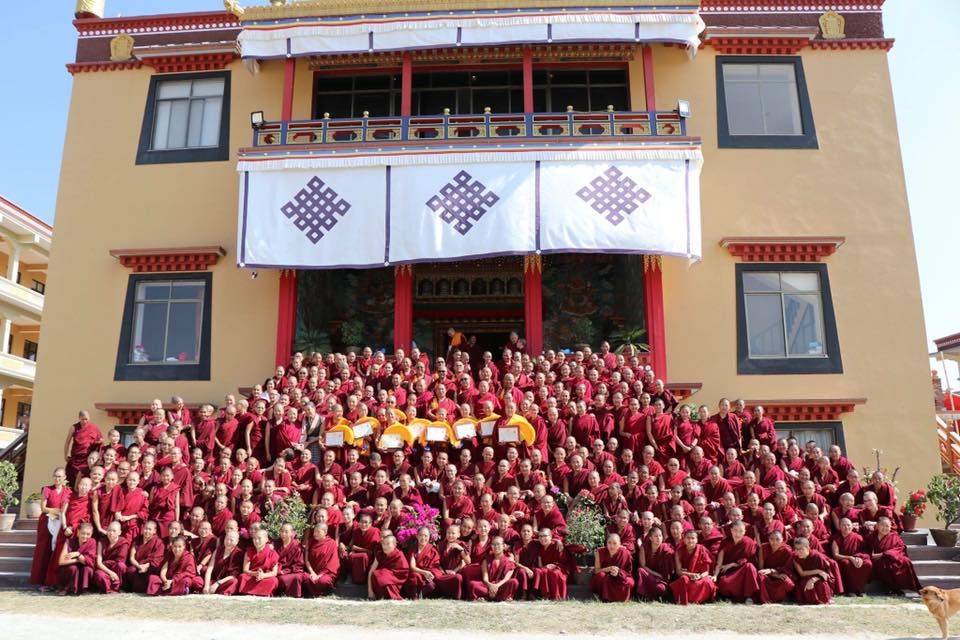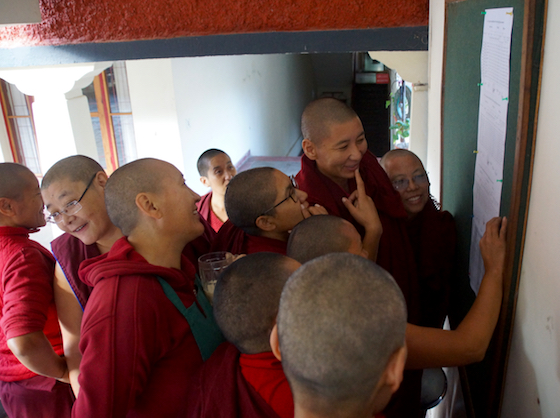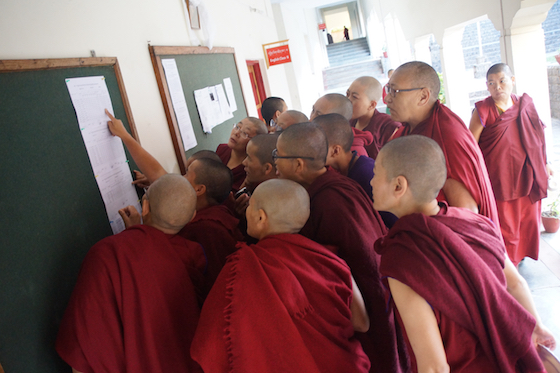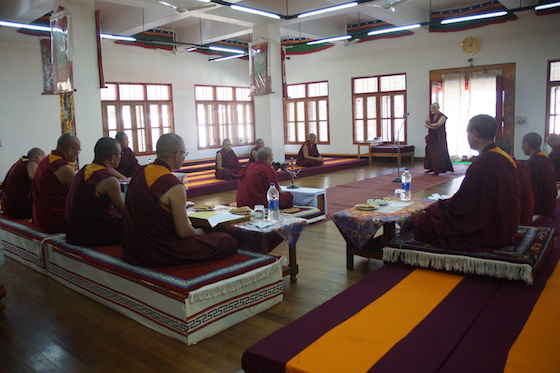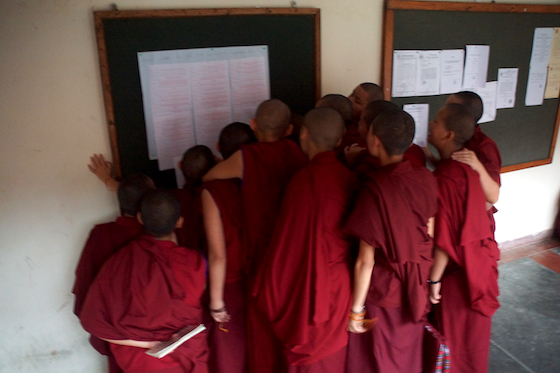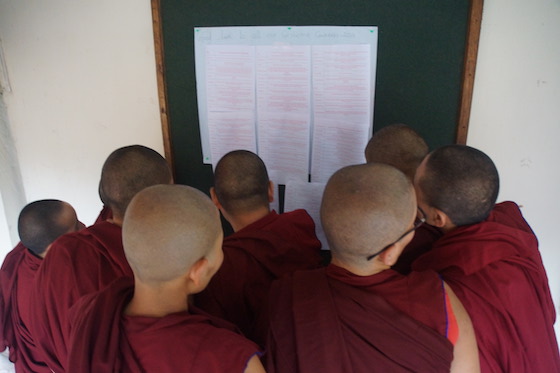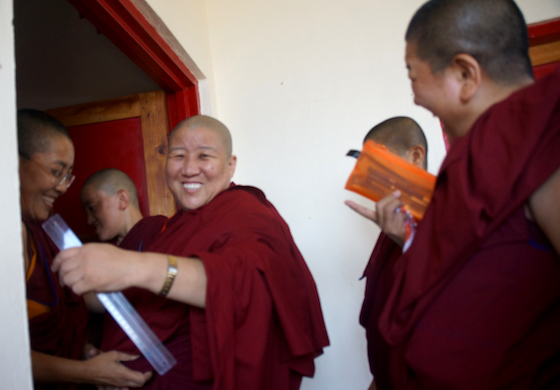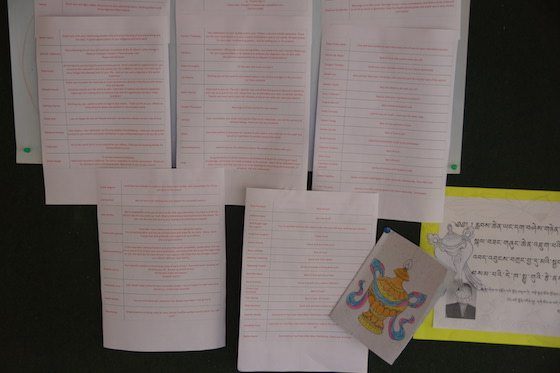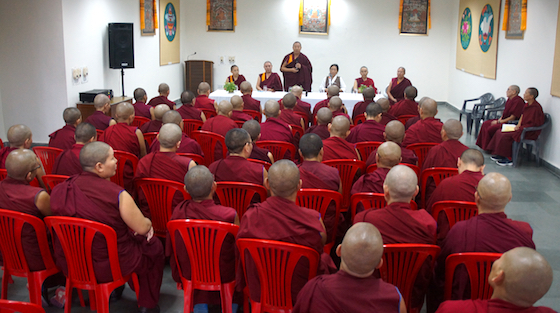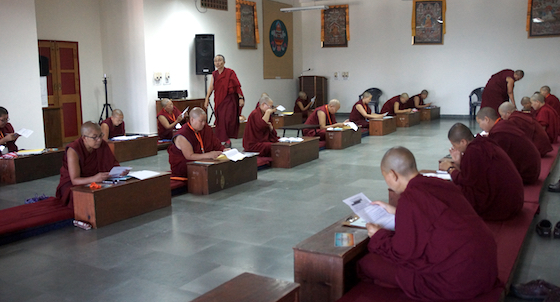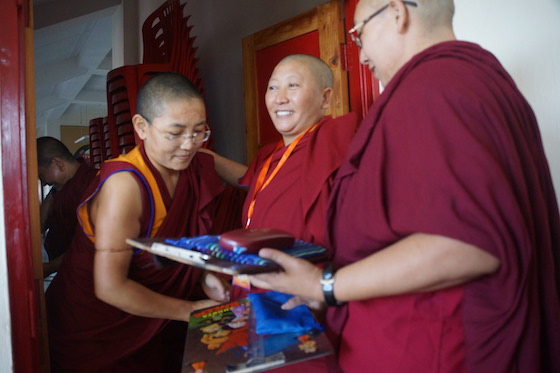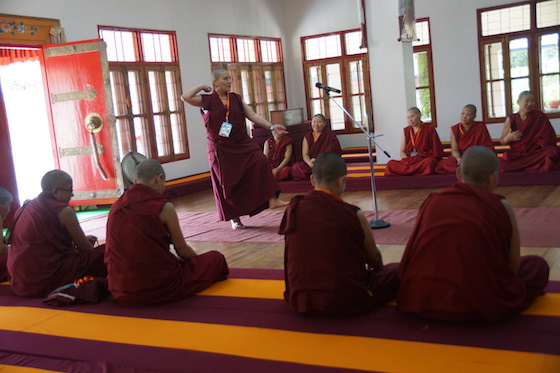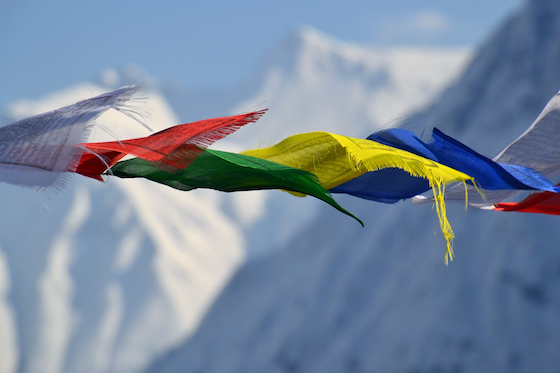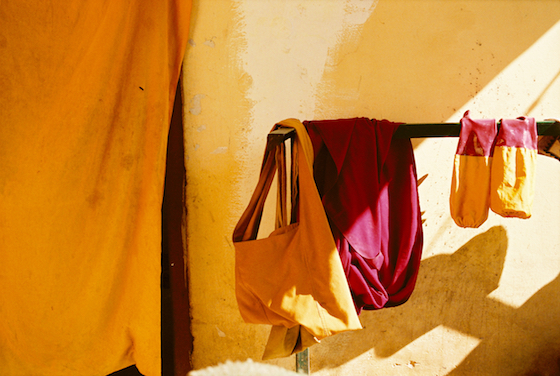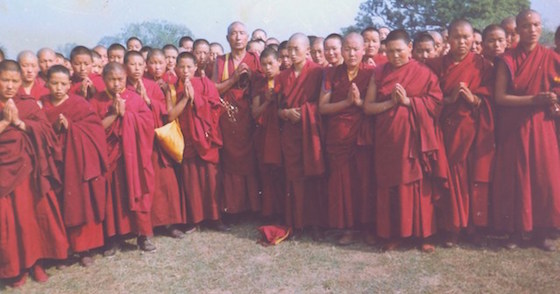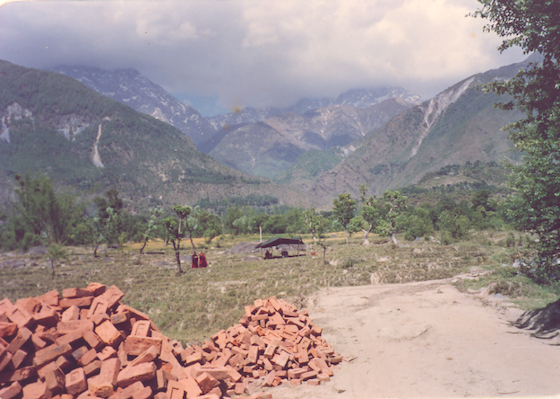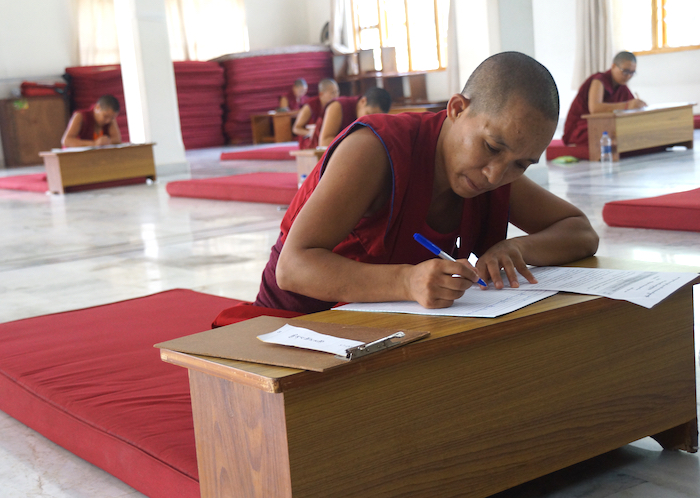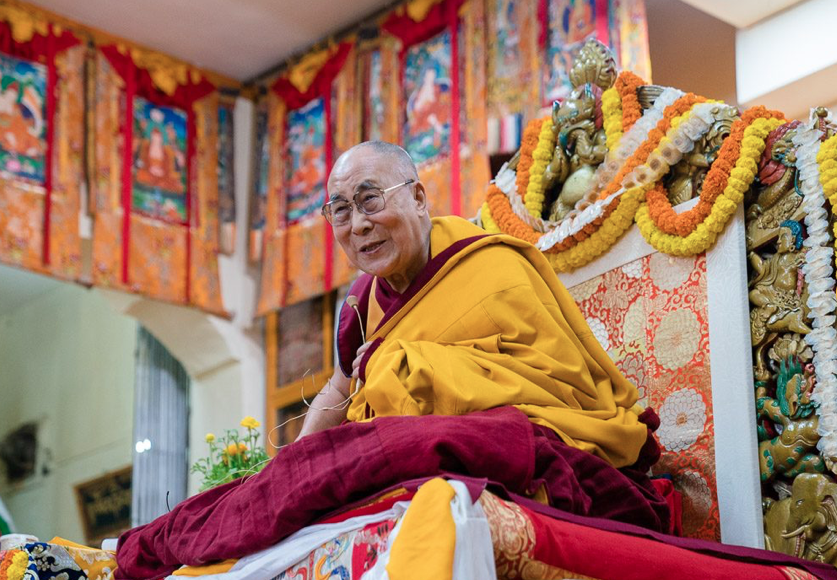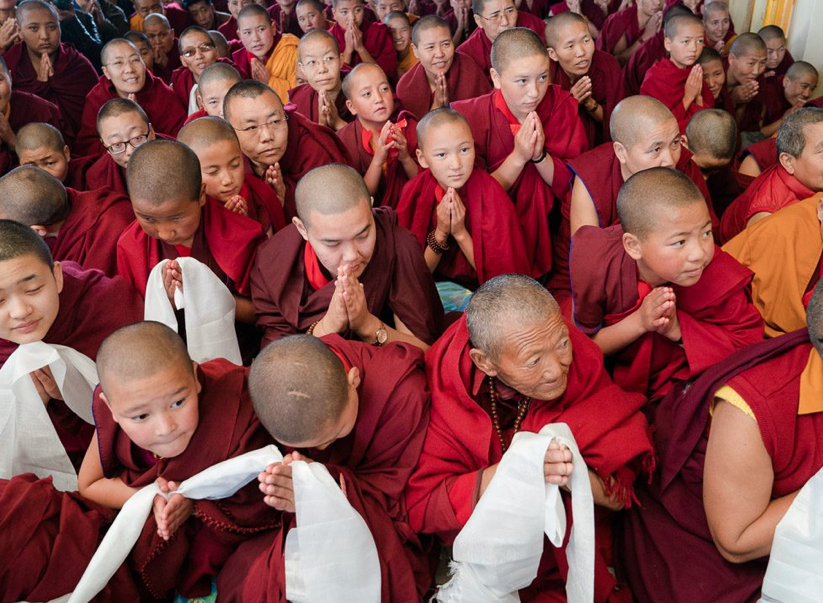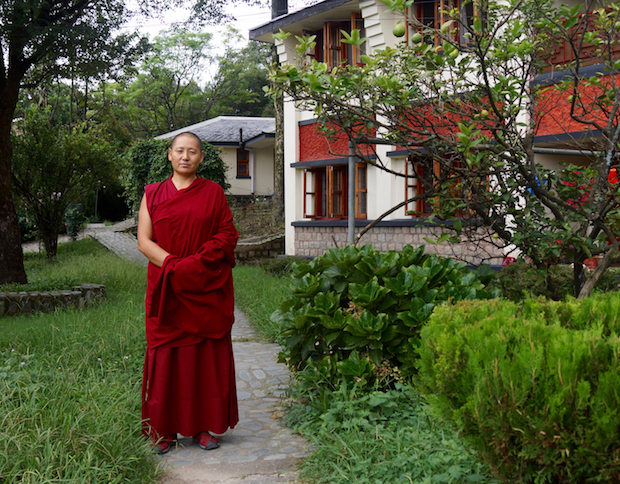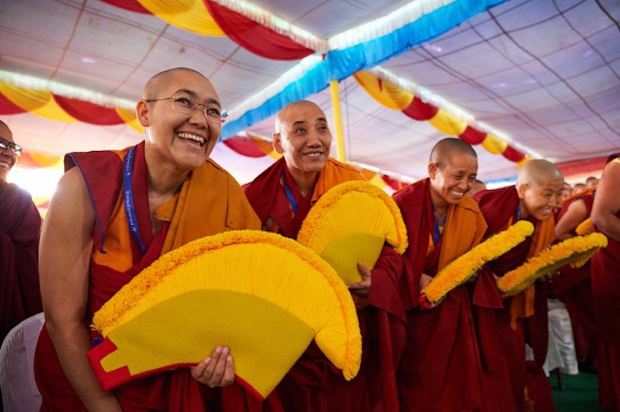On February 1 2019, a special ceremony was held in Dharamsala, India to celebrate the completion of the new course in Buddhist Tantric studies by nuns who have previously earned their Geshema degrees.
Kalon Venerable Karma Gelek Yuthok of the Department of Religion and Culture of the Central Tibetan Administration attended the event which was held at Gyuto Tantric Monastery.
At the ceremony, the first 23 of the 36 Geshemas received certificates for completing the groundbreaking course in Tantric studies.
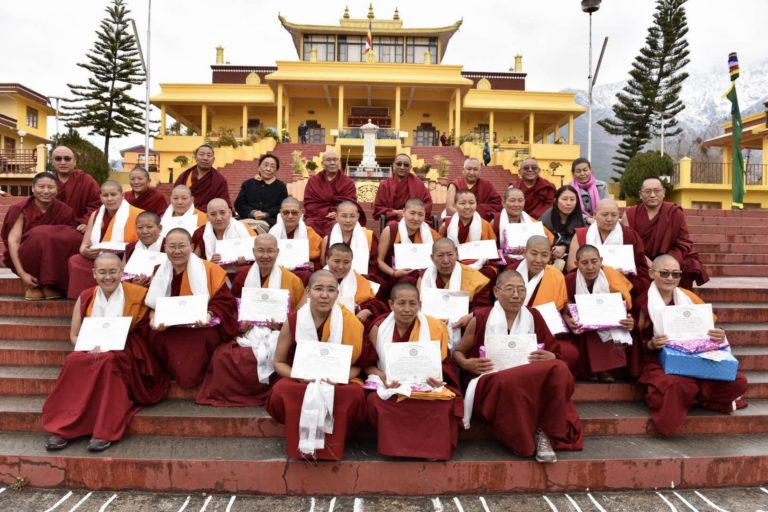
Following a special ceremony, the first Geshemas with their certificates in Tantric studies. They received their certificates from Kalon Ven. Karma Gelek Yuthok of the Department of Religion and Culture. Photo courtesy of Tenzin Phende/CTA
Other honored guests at the ceremony included Khenpo Thupten Tenzin; Senior Abbot Tsering Topgyal of Gyutoe Monastery; Gaden Choeling Khenpo; Rinchen Khando Choegyal, Founding Director and Special Advisor for the Tibetan Nuns Project; and Nangsa Choedon, the Director of Tibetan Nuns Project in India.
The program in Tantric Buddhism for nuns who had attained their Geshema degrees was started in 2017. This groundbreaking new program provides these dedicated senior nuns training in tantric theory, rituals, and mind-training techniques used by those engaged in advanced meditation. This level of training is an essential part of studies for Geshes and is a required step enabling them to be fully qualified for advanced leadership roles, such as being an abbot of a monastery.
Kalon Ven. Karma Gelek Yuthok congratulated the Geshemas on achieving such a milestone and applauded the hard work of the various institutions behind this success. He thanked all the previous kalons (ministers) and staff who worked to make this historic achievement possible.
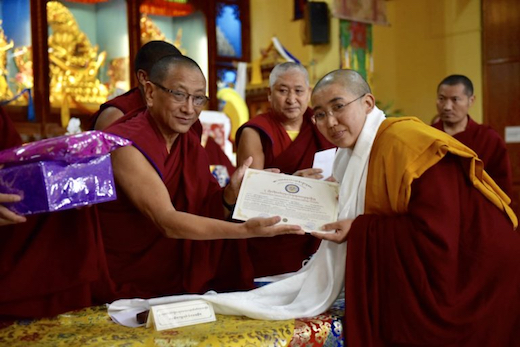
Kalon Ven. Karma Gelek Yuthok of the Department of Religion and Culture confers a certificate to one of the Geshemas who completed the program in Tantric studies. Photo courtesy of Tenzin Phende/CTA
Kalon Ven. Karma Gelek Yuthok stressed the need to combine traditional and modern education to acquire in-depth knowledge.
“The number of monks and nuns in exile is decreasing. Even those in Tibet are being topped by the Chinese Government. So we must look into the necessity as per requirement to further develop our infrastructure. It is in the best interest to have better quality than to have quantity. So we must start improving the qualities of those existing to enhance further,” he said.
Rinchen Khando Choegyal reflected on more than 30 years of efforts of the Tibetan Nuns Project. She urged the Geshemas to serve the community, saying, “It is the highest level of women’s empowerment entrusted on Tibetan women.”
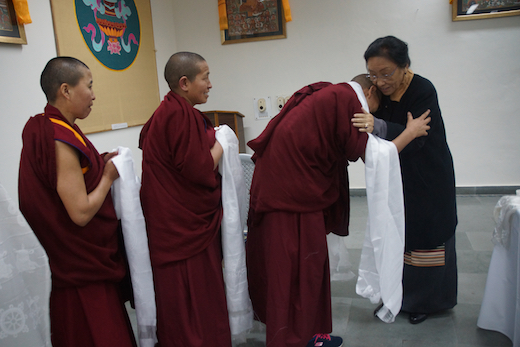
Rinchen Khando Choegyal, the Tibetan Nuns Project’s Founding Director and Special Advisor, embraces one of the Geshemas who completed her Tantric studies. Photo courtesy of the Nuns’ Media Team.
Khenpo Thupten Tenzin said, ”The conferment of Geshema degree to Tibetan Buddhist nuns was a longstanding aspiration of His Holiness the Dalai Lama and reflects a historic milestone. Now you have obtained both Sutras and Tantric teaching.” He also spoke about the need to preserve Tibet’s rich culture and traditions.
Gadhen Choeling Khenpo and head of Board of Geshema Degree Examination gave a vote of thanks.
The Geshemas who completed their Tantric studies received a special audience with His Holiness the Dalai Lama on 31 January 2019.

On 28 January 2019, the Geshemas took both written and debate (oral) exams. Photo courtesy of the Nuns’ Media Team
The historic decision to confer the Geshema degree to Tibetan Buddhist nuns was announced in 2012 by the Department of Religion and Culture following a meeting of representatives from six major nunneries, the Institute of Buddhist Dialectics, and the Tibetan Nuns Project.
The Geshema degree for nuns or Geshe degree for monks is comparable to a doctorate in philosophy. The degree is conferred after at least 21 years of rigorous study of the five main Buddhist texts and a four-year exam process involving both written and oral (debate) exams and a thesis.
This post uses some photos, quotations, and other information from Tenzin Phende’s news story “Chorig Kalon attends completion of one year Tantric course for Geshemas” published on February 1 2019 by the Central Tibetan Administration.


